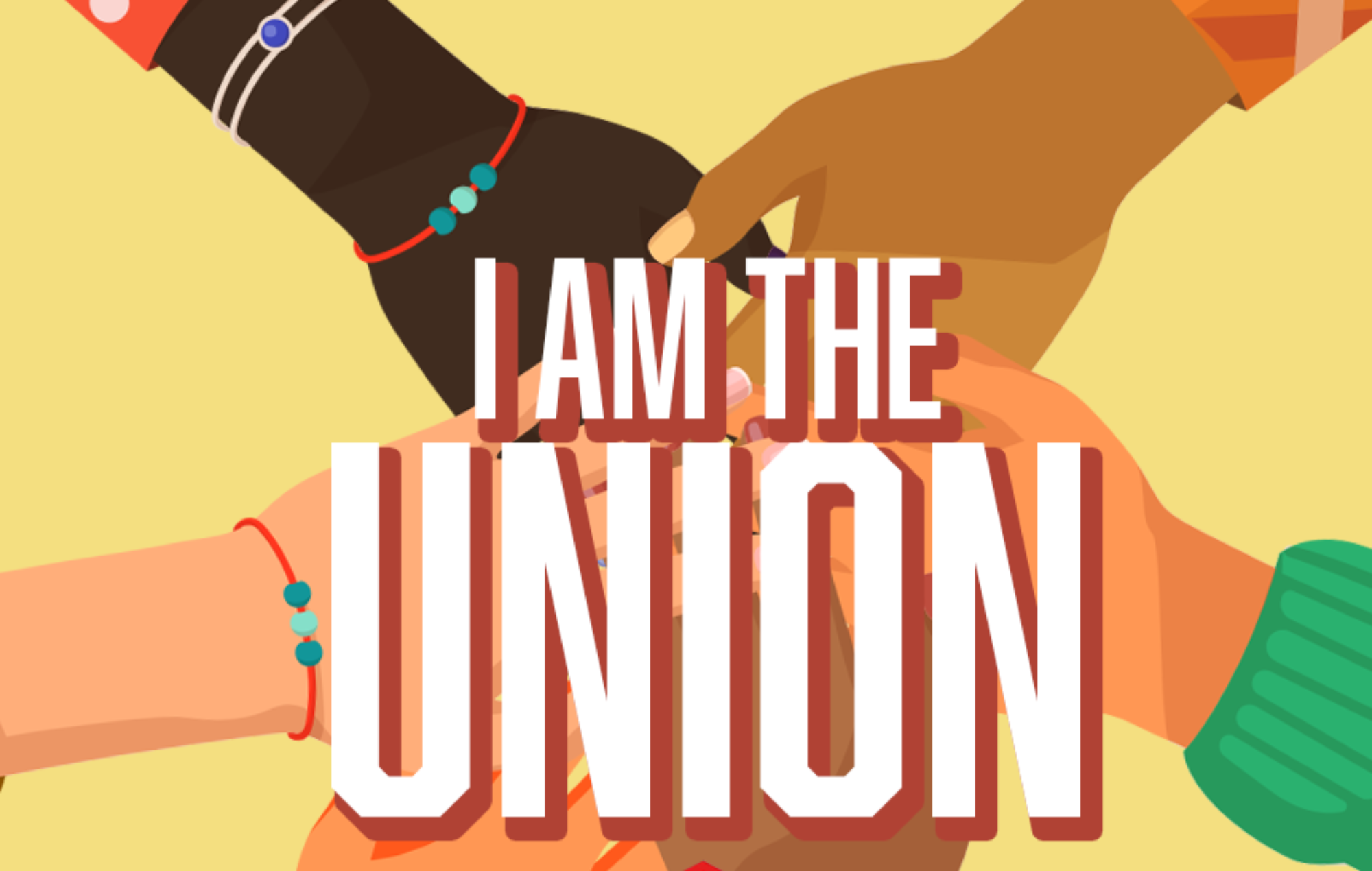Congratulations to Gunnar, son of our member Rachel, for being selected as this year’s scholarship winner for his essay on unions. We are so proud of him!
The Role of Unions in the American Economy Today
There is no doubt about it, unions tend to get a bad rap. Mostly depending on which side of politics one tends to land, the conversations about unions can create a heated debate, with some saying that they are necessary and others claiming that they just desire to keep on their hands on the pursestrings of the government. It is no different in my family. Coming from a home in which my mom is a part of a union and other members of our extended family are not, it has sparked many discussions at Thanksgiving dinner. No matter what side of the debate you fall on, there is no denying the economical benefits of unions in today’s society, nor can one argue the impact that unions have had on the American worker, including my mom.
Before one can understand the tremendous impact that unions have on the economy, we need to understand why unions even exist in the first place. Before the creation of unions, the average American worker struggled under strenuous working conditions for meager pay and were constantly subjected to unfair business practices. The most common pre-union story involved garment workers in New York City. They worked an ungodly number of hours, sometimes not even seeing the sun for weeks at a time. They were severely underpaid and sometimes even paid less than they should have been for the work they put in. As if that was not inhumane in itself, sometimes the bosses would lock employees in so that they could not leave until all work was completed. In probably the most well-known incident regarding apparel workers in New York City, one of those locked doors is largely to blame for the incident at the Triangle Shirtwaist Factory. When a fire erupted on the 8th floor, workers could not escape due to the fact that the door was locked, and almost 150 people died. This event spurred people into action, and unionization began in order to create a safer working environment for the employees in apparel factories. Furthermore, many employees no longer had to work such grueling hours (Century Foundation).
Many years later, the Great Depression hit, and thanks to President Franklin D. Roosevelt, who considered employee’s wages to be too low, the National Labor Relations Act was enacted by Congress. The purpose of the NLRA was “to protect the rights of employees, to encourage collective bargaining, and to curtail certain private sector labor and management practices, which can harm the general welfare of workers, businesses and the U.S. economy” (National Labor Relations Board). Essentially, this act put the power into the employees’ hands. It gave employees the ability to unionize. The American worker’s voice became bigger and bolder by the opportunity to unite with fellow employees to fight for better wages and better working conditions. Throughout the next several decades, the largest American corporations such as General Motors, Ford, Chrysler, and U.S. Steel went on strike to fight for higher wages and fair working conditions (Century Foundation).
Having some background about why unions exist in the first place helps us to understand the impact unions have on our economy. First and foremost, unions put more money into the pockets of American workers. On average, union workers make 10.2% more than average nonunion workers. (Economic Policy Institute). However, even non-union workers benefit from the work of unions. Unions help to create a living wage for people who might otherwise be scraping by just to make ends meet and also provide employees more benefits such as insurance and retirement. Unions help to bring more people into the middle class sector. (AFL-CIO). When we are little, everyone hears about the “American Dream.” They long to be independent, work a solid job, own a home and a car. and have a little wiggle room to have some fun every now and then. Unions help more Americans to realize that dream.
In addition, with the union bargaining on behalf of the employees, it also helps to lower inequality. “When unions are strong, they set wage standards for entire industries and occupations; they make wages more equal within occupations; and they close pay gaps between white workers and workers of color” (Economic Policy Institute). It is unfortunate that this paragraph even needs to be written, but the discrepancies in pay between white employees and people of color is real and it is disheartening. Unions work to help to make working conditions safer, pay higher, and employment fairer for all employees – including people of color. Not only to workers of color benefit, but it also helps to close wage disparities between women and men. “Hourly wages for women represented by unions are 4.7% higher on average than for nonunionized women with comparable characteristics” (Economic Policy Institute). Unions are paving the way for people of color and female employees to close the wage gap between their white and/or male counterparts.
It is clear that unions have a tremendous impact on the economy, so why does the debate about unions still exist? I firmly believe that it is because we fail to put faces to the people that unions impact the most. For me, that is my mom. My mother is an employee of Caddo Parish Schools in Shreveport, Louisiana. When she began her teaching career thirteen years ago, a union representative from Red River United, an affiliate of Louisiana Federation of Teachers and the American Federation of Teachers spoke with the new employees at her orientation. At the time, my mom really did not know anything about unions and was unsure if joining the union was right for her. However, after listening to the local union president Jackie Lansdale speak, my mom was convinced that joining the union was the right move to protect herself and our family. For pennies a day, the peace of mind that she got from signing that contract was priceless. In a particularly tough district, employees need a voice at the local level in school board meetings and at the state level as well. Over the years, her local union has gone to bat for teachers in the district and throughout Louisiana time and time again. Because of the work of the union in Louisiana, teachers have received multiple pay raises, voice in how that pay is distributed, bonuses, changes in the way teachers are evaluated, and protection of their planning time. Closer still, my mom and a few of her colleagues worked with Red River United to fight for fairness in the bonus structure as it applies to teacher effectiveness in evaluations. My mom saw how some teachers’ evaluations, including her own, were more strenuous and unattainable than others depending on the content area and grade level taught. Some teachers had the ability to set their own goals and parameters for meeting those goals, while others had no input or control over the goals that were set for them. This resulted in many of these teachers failing to earn bonuses. My mom and her two colleagues called Mrs. Lansdale immediately, and that was all it took. Jackie just handled it. The union fought for my mom when she did not know how to even begin the conversation. Within a few months, changes were made that would allow for all teachers to follow the same process for goal setting and evaluation, which helped more teachers to earn these bonuses that were previously reserved for only a few.
Without the creation and hard work of unions, our economy and our country would not be where it is today. Unions have provided the everyday, hard-working American with higher and fairer wages, safer and better working conditions, and, of course, weekends. However, it is in putting a face to our local unions that helps us to realize the great impact that unions have on the American worker. I know for my family, being a part of a union has had a positive and lasting impact because of my mom’s decision thirteen years ago to join the teacher’s union. We are proud to be part of the union family.
Works Cited
AFL-CIO. “Union Facts: The Value of Collective Voice.” AFL-CIO, 2023, https://aflcio.org/formaunion/collective-voice. Accessed 12 January 2023.
Economic Policy Institute. “Unions help reduce disparities and strengthen our democracy.” Economic Policy Institute, 23 April 2021, https://www.epi.org/publication/unions-help-reduce-disparities-and-strengthen-our-democracy/. Accessed 12 January 2023.
Greenhouse, Steven. “How Unions Work for the Economy.” The Century Foundation, 16 November 2022, https://tcf.org/content/report/how-unions-work-for-the-economy/. Accessed 12 January 2023.
National Labor Relations. “Introduction to the NLRB.” National Labor Relations Board, 2023, https://www.nlrb.gov/about-nlrb/what-we-do/introduction-to-the-nlrb. Accessed 12 January 2023.

